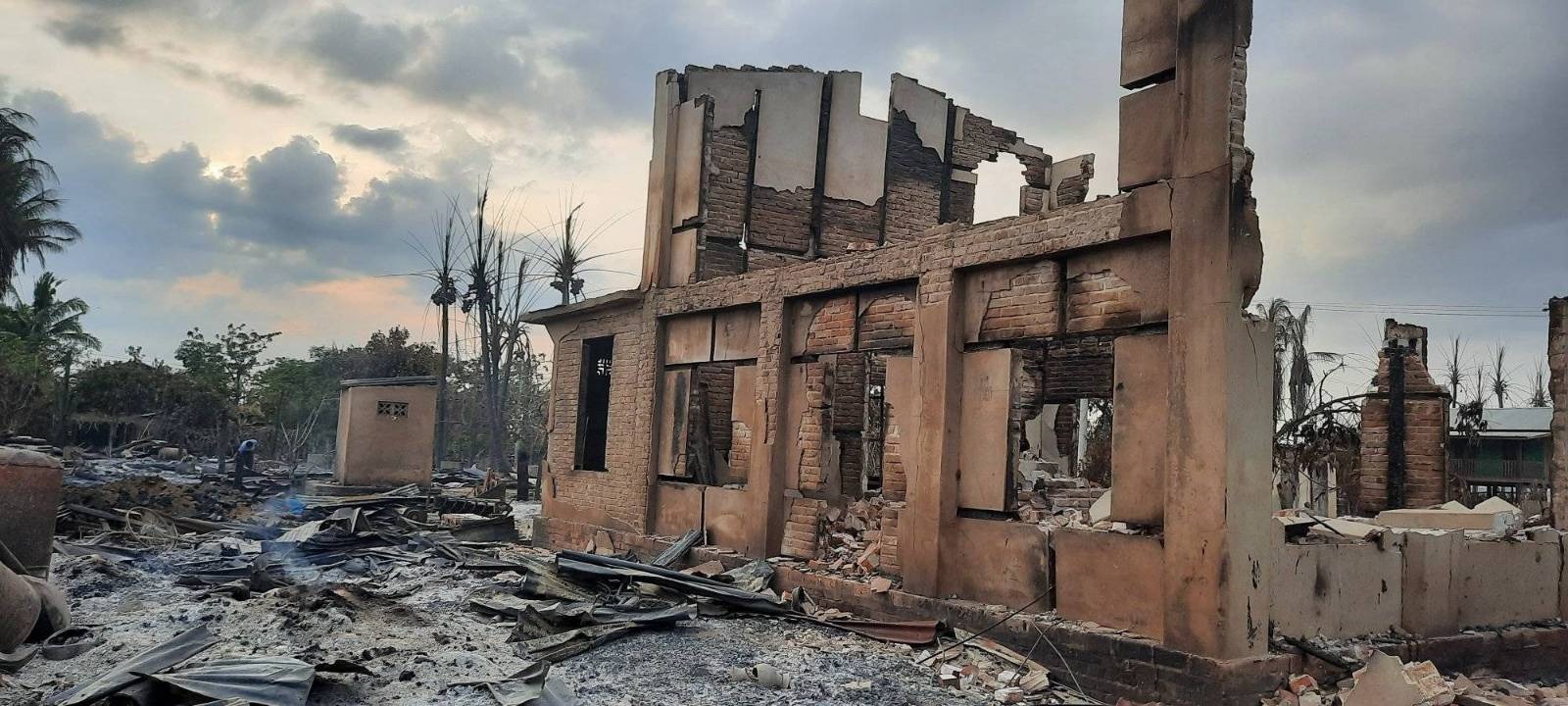As the post-coup crisis has deepened in Myanmar, the UN special envoy for the country and regional leaders have seemed helpless as to how best to address the issues facing the country.
Noeleen Heyzer, the UN special envoy, admitted on Monday at the UN General Assembly that the political crisis unleashed in Myanmar following the Feb. 1 military coup last year has “opened new frontlines that had long been at peace,” noting that the challenges in the country have “both deepened and expanded dramatically.”
Heyzer said that since she took up the job six months ago, Myanmar had “continued to descend into profound and widespread conflict”.
Myanmar has been in social and political turmoil since last year’s military coup. More than one year on, the regime is still unable to control the country while struggling with popular armed resistance against its rule. The country’s economy is in a downward spiral so severe the World Bank said the situation is too chaotic for it to offer GDP growth forecasts for the coming years. The junta, ignoring the Association of Southeast Asian Nations (ASEAN)’s request that it implement the peace plan the bloc adopted for Myanmar, has continued killing civilians and burning tens of thousands of homes in a bid to crush the resistance.
Calling Myanmar’s situation one of the world’s largest refugee emergencies, Heyzer said that as a result of the multidimensional crises in the country there were now over 1 million internally displaced people (IDPs) across the country with “serious regional and international ramifications”.
Malaysian Foreign Minister Saifuddin Abdullah, speaking at the Shangri-La Dialogue security summit in Singapore, said that Malaysia will propose an expansion of the powers granted to ASEAN’s special envoy to Myanmar as the country’s post-coup violence shows no signs of abating. He described the situation in Myanmar as a “real test for the region”, adding that the country was descending rapidly into “some kind of civil war.”

“We, the foreign ministers of ASEAN, must really put a lot of effort into the idea of strengthening the special envoy,” Saifuddin told reporters on the sidelines of the summit.
ASEAN has appointed Cambodian Foreign Minister Prak Sokhonn as the bloc’s Special Envoy for Myanmar. He visited the country in March to meet with regime leader Min Aung Hlaing. After the trip, the envoy said the Myanmar issue was complicated and would take a long time to solve, as the “stakeholders were not ready to cooperate and still insist on fighting and eliminating one another.”
Among other things, the Malaysian proposal could involve making the envoy’s role a full-time position with a tenure of more than 12 months, according to the South China Morning Post.
US Department of State Counselor Derek Chollet said at the Shangari-La summit that the US was constantly thinking of ways to pressure the regime to enter negotiations to put Myanmar back on the path of democracy, including fresh sanctions to cut off the junta’s resources and cripple its military capabilities.
Heyzer said she was continuing to work closely with ASEAN to de-escalate hostilities. However, she pointed out that continued differences, regionally and more broadly among UN member states, “have left the people of Myanmar feeling abandoned in their time of need.”
“I will continue to play a bridging role…in Myanmar, in the region, and the international community to address the protection needs and suffering of the most vulnerable, and to support the will of the people for a future federal democratic union based on peace, stability and shared prosperity.”
Meanwhile, ASEAN Special Envoy Prak Sokhonn will make his second trip to Myanmar on June 29-30.
Sources told The Irrawaddy that the trip was aimed at following up on the implementation of ASEAN’s peace plan for Myanmar, known as the Five-Point Consensus, but it’s not clear which points would be his focus this time. The envoy has asked the regime for permission to meet with ousted leader and State Counselor Daw Aung San Suu Kyi, as well as other key stakeholders during the upcoming visit.
Following his trip in March, the junta agreed to allow ASEAN to send humanitarian aid into Myanmar, one of the points in the peace plan, but only through its official channels. This has prompted fears among right groups and opposition forces that the junta will use the aid for itself rather than delivering it to those in need.
At the same time, ASEAN was criticized for not pushing the junta to implement more immediate points such as the “immediate cessation of violence” in the country.
Since the adoption of the consensus in April last year, the junta has killed at least 1,700 people, mostly for engaging in anti-regime activism. Furthermore, since last month it has escalated raids and set villages on fire nearly every day in resistance strongholds like Sagaing in Upper Myanmar.
Data for Myanmar, an independent group monitoring junta atrocities, reported on June 3 that an estimated 18,886 houses and other buildings had been burned down since the 2021 coup. Sagaing has suffered the most, losing an estimated 13,840 houses.

















